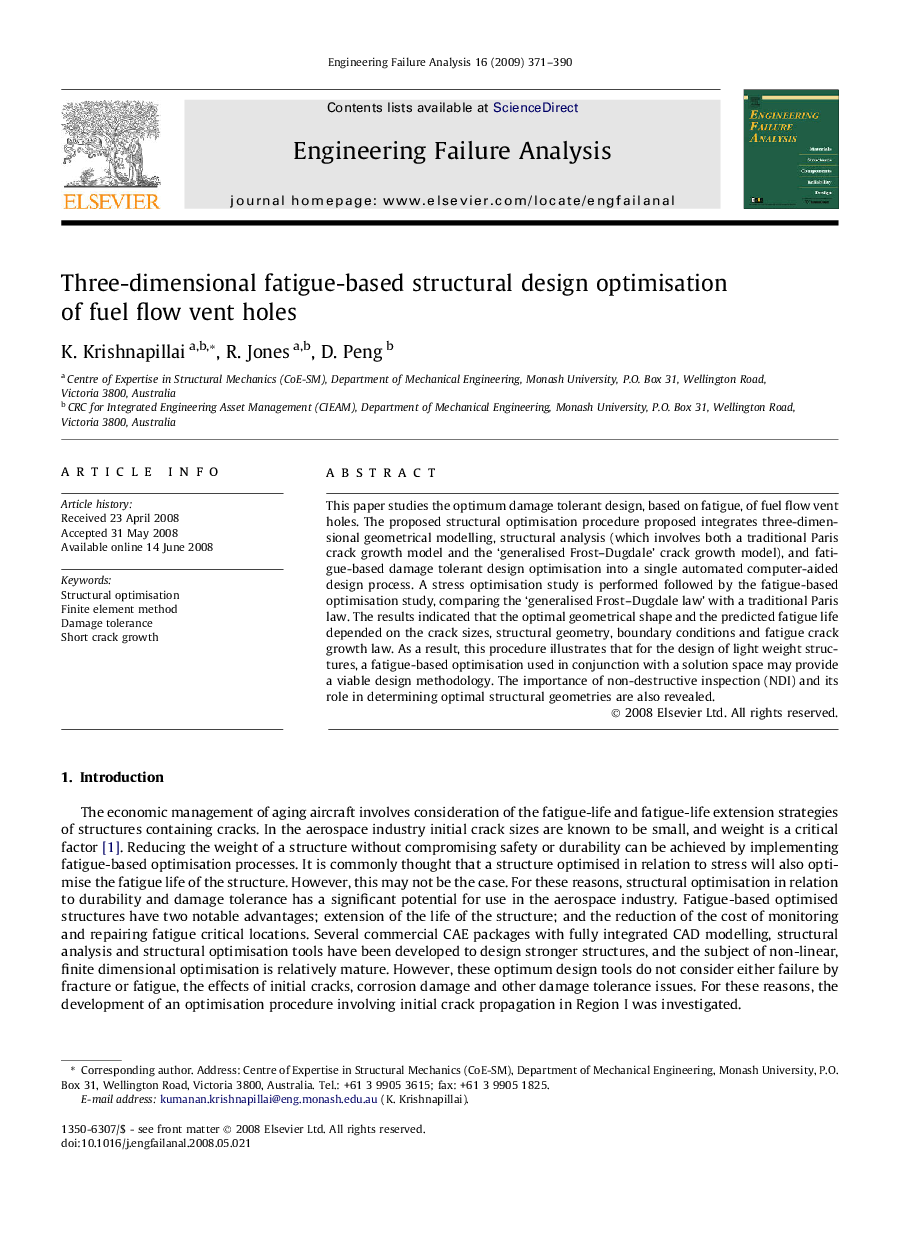| Article ID | Journal | Published Year | Pages | File Type |
|---|---|---|---|---|
| 770062 | Engineering Failure Analysis | 2009 | 20 Pages |
This paper studies the optimum damage tolerant design, based on fatigue, of fuel flow vent holes. The proposed structural optimisation procedure proposed integrates three-dimensional geometrical modelling, structural analysis (which involves both a traditional Paris crack growth model and the ‘generalised Frost–Dugdale’ crack growth model), and fatigue-based damage tolerant design optimisation into a single automated computer-aided design process. A stress optimisation study is performed followed by the fatigue-based optimisation study, comparing the ‘generalised Frost–Dugdale law’ with a traditional Paris law. The results indicated that the optimal geometrical shape and the predicted fatigue life depended on the crack sizes, structural geometry, boundary conditions and fatigue crack growth law. As a result, this procedure illustrates that for the design of light weight structures, a fatigue-based optimisation used in conjunction with a solution space may provide a viable design methodology. The importance of non-destructive inspection (NDI) and its role in determining optimal structural geometries are also revealed.
